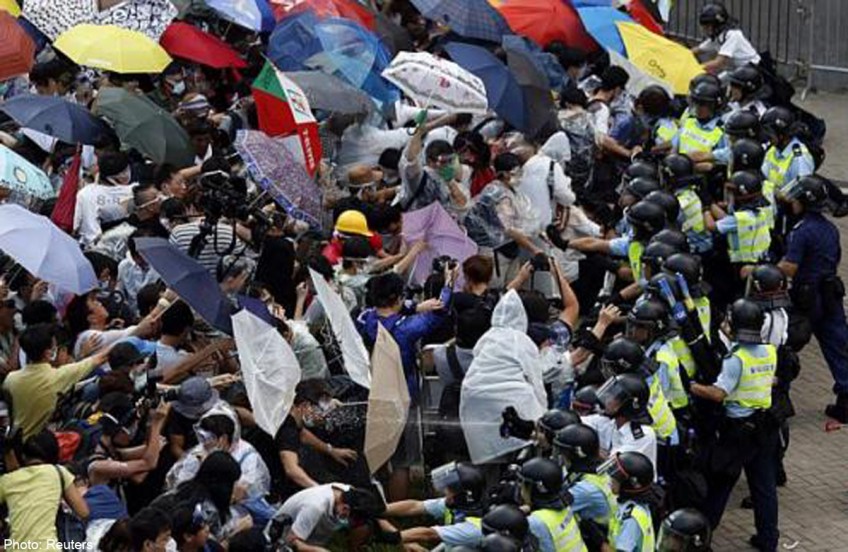Hong Kong protest leaders request formal meeting with Beijing

HONG KONG - Hong Kong protest leaders made a formal request Friday to speak with China over political reform, calling on a pro-Beijing politician to act as their mediator.
Protest numbers have dwindled since mass rallies mobilised tens of thousands demanding fully free elections for the city's next leader.
But demonstrators are still entrenched at key intersections with a "tent city" spread across the main Admiralty site.
Fruitless talks with the Hong Kong government two weeks ago have led to an impasse and protest leaders now want to bypass the unpopular local administration altogether.
Leading protest group the Hong Kong Federation of Students (HKFS) presented an open letter Friday to the city's former leader Tung Chee-hwa requesting his help to arrange a meeting with Beijing officials.
"We hope Tung can show political generosity... and help arrange a meeting between students and Chinese officials either in Hong Kong or in Beijing so that we can directly express the situation in the city," the federation said in the letter published Friday.
The Hong Kong government "did not have the ability to respond" to student demands, HKFS said, adding that they hoped to hear back from Tung by Sunday.
"Tung Chee-hwa is well-respected from the perspective of Beijing and was the former chief executive of Hong Kong so I think he is in a good position to mediate," political analyst Sonny Lo told AFP.
"There is a window of opportunity here," he said.
Tung's office had no immediate comment.
HKFS had considered trying to gatecrash the upcoming Asia-Pacific Economic Cooperation (APEC) global financial summit of global leaders in Beijing, but abandoned the plans saying the possibility of actually meeting Chinese officials was too remote.
Tung was the city's first chief executive after Britain handed the city back to China in 1997 and is vice chairman of prestigious Beijing government body, the Chinese People's Political Consultative Conference.
He had his own share of troubles in handling pro-democracy protests in 2003 when 500,000 people took part in a rally against a proposed national security bill, forcing his administration to shelve it.
It was a key factor in his resignation eighteen months later.
The CPPCC expelled senior Hong Kong lawmaker James Tien last Wednesday after he criticised the city's embattled leader Leung Chun-ying for failing to end the protests.
The mass demonstrations in Hong Kong were sparked by China's decision that all candidates running for the top Hong Kong post in 2017 must be vetted by a loyalist committee, which the protesters say will result in the election of a pro-Beijing stooge.
China has refused to budge and has publicly thrown its full support behind the Hong Kong administration.